"I feel as if we have a fantastic relationship between all the different years at College, with a sense that you are connected to those in 1st and 2nd year perhaps more so than you would at other universities."
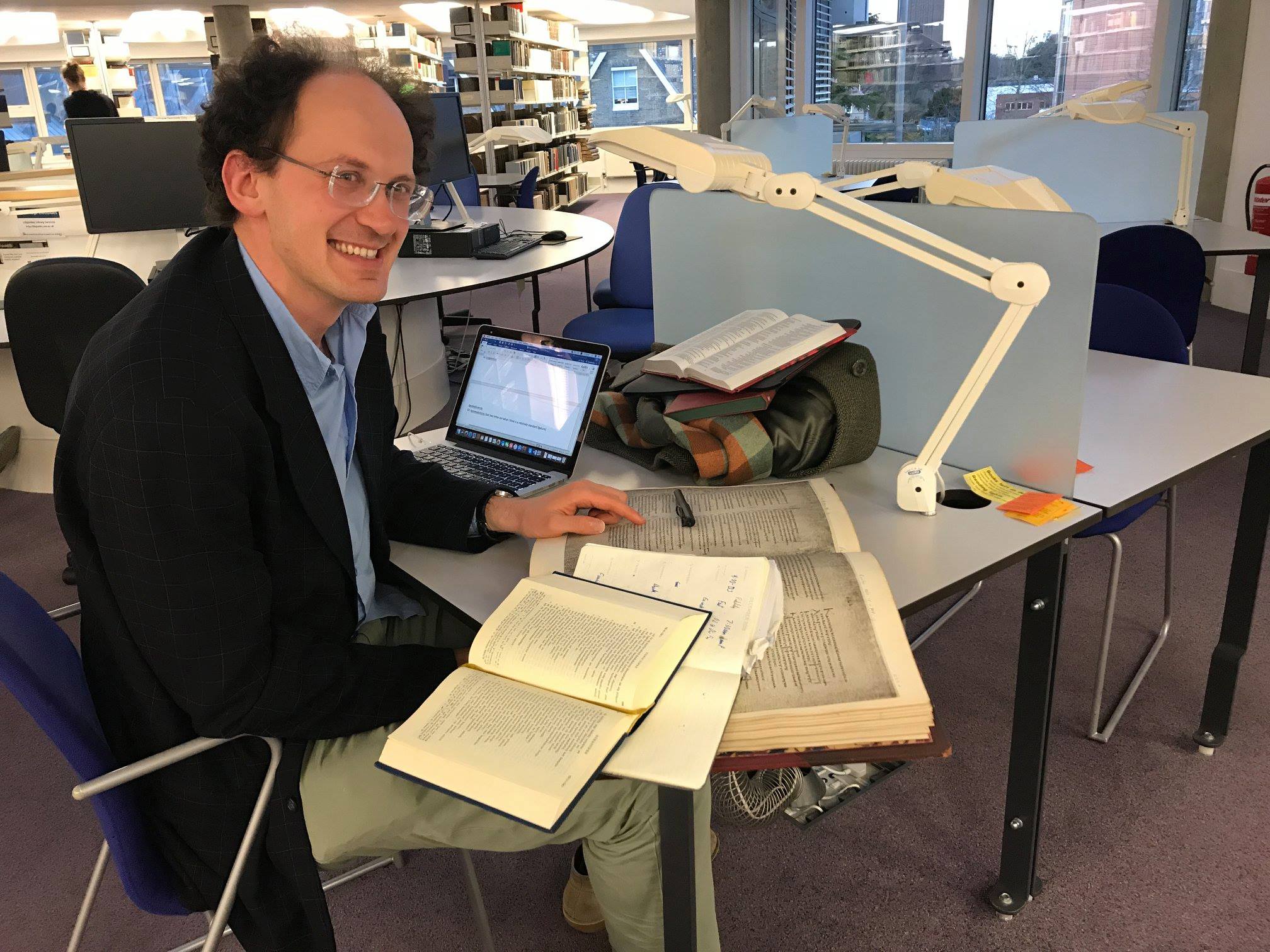
Rohan is from Haringey, London and wrote this at the end of his third and final year of Geography here at Christ's College, Cambridge. Before Cambridge he did A levels in Geography, English Literature and Mathematics, plus an AS level in French.
How easy did you find it to choose a university course?
I was interested in studying Geography at university in a vague sense from about Year 9 or 10, though I developed a more specific interest in looking at courses at the beginning of sixth form. I think it is really critical to stress that you shouldn’t feel worried if you have not yet properly decided on the course you want to do, or the university you want to study at. Many people only really finalize this when they are writing their personal statements during the transition between Year 12 and 13 (i.e. over summer or when they have returned to Year 13 in the autumn). In fact, this stage can often help clarify what you want to do, as it really makes you think about why you may or may not want to do a particular course. I would recommend trying to visit as many universities as you can (if this is a possibility), as well as reading about the courses on the university websites. University fairs organized by my school served as a major source of information about applying for me, as I could speak to representatives from a wide range of places and pick up a copy of their prospectus. I believe that many universities offer to send a copy of their prospectus to your address if you get in touch with them online, and there is no harm in contacting admissions offices with questions should you have any (they don’t keep tabs about you!). It is easy to feel overwhelmed at times with all the choice, and as such, I’d personally think about two key things:
- Do the modules of a given course sound interesting and engaging to you from their titles, would you enjoy learning about them, and is there anything that you feel may be missing from a course?
- Think about the kind of university at which you’d like to study: maybe you want to live in a big city (or maybe you would prefer to live in a smaller town); maybe you would prefer to be able to walk frequently instead of having to take public transport; or maybe you don’t want a university that is too far away from your home. This is a totally personal choice!
What attracted you to Cambridge?
I would say that the specific Geography course offered at Cambridge was one of the main reasons that I applied to the university. One of the key problems I faced when applying to other universities was that many required me to choose between doing a BA or a BSc in Geography, which would have radically altered the modules available to me (i.e. physical versus human Geography). This would have meant making a decision about many of the courses I would have been studying from well before I even arrived at the university. In retrospect, despite thinking that I would prefer physical Geography before university, I ended up taking mostly human courses at Cambridge. The brilliant thing about Cambridge was that the course never made me choose between the two. All degrees at Cambridge are technically BAs (including Maths!), with a huge variety of module options. Often your first year will be comprised of various compulsory modules from all aspects of your course, which are super-useful in helping you decide what you may want to specialize in during later years. There can often be a module that sounds terrible that you end up loving, and likewise one that you think you’ll really enjoy that turns out to not quite be your thing. In all its courses I really believe that Cambridge offers you breadth that is simply not available at other universities (even Oxford), such as with its Natural Sciences courses that do not confine you to a specific subject area from the start but take you from a broad lens to specialize more closely as you go along (i.e. you choose between Physical or Biological Natural Sciences, as opposed to between Biology, Chemistry, or Physics). It’s a great way to learn about new things and find out about what really interests you.
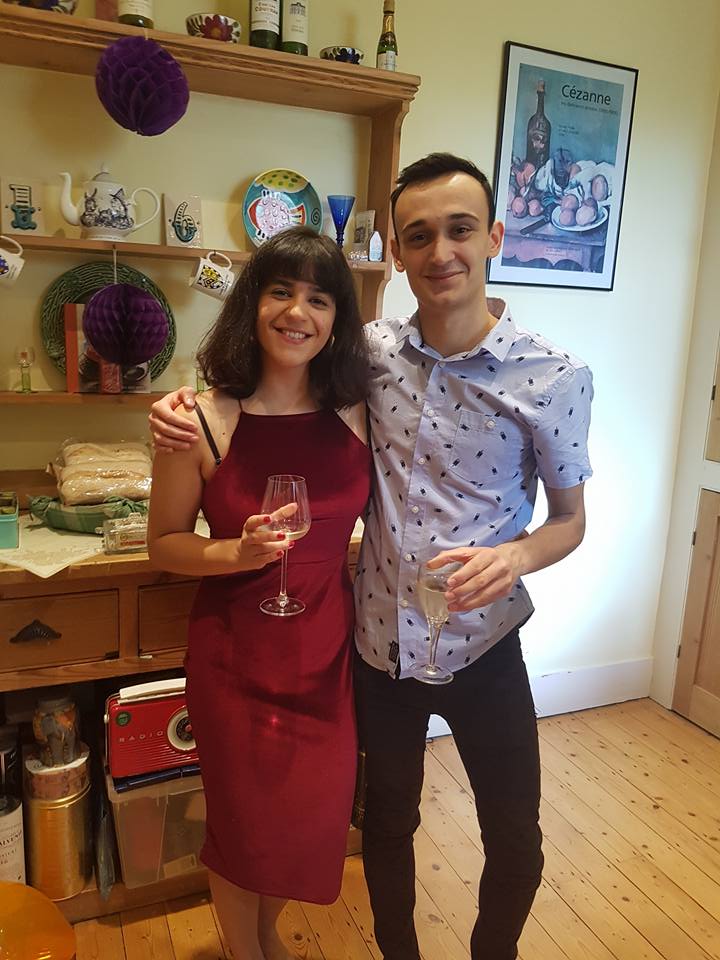
Why did you choose Christ’s?
I had always wanted to study at one of the older Cambridge Colleges simply as a personal preference, and Christ’s is so fantastically central that it served as a perfect choice, especially since the Geography Department was also so nearby. Upon reading about the College further, I was impressed both by its academic record and keen attention to the welfare of its students. I would encourage those who can visit Cambridge in person to do so, since a walk around the Colleges can be a great way to see how each of them feel in their own unique way. I personally also think that the First Court of Christ’s is one of the most beautiful and unique in the whole of Cambridge with its circular lawn and greenery! That said, I think it’s really important not to stress too much about choosing your College. I do not know a single person at the university who is unhappy with their College (either through them choosing it or through being pooled to that College). You will also always have the opportunity to meet those from outside, through attending lectures and supervisors, or through getting involved in societies or other groups.
I would say that the experience of living and studying at Christ’s has exceeded my expectations. During my time at College I have never felt like there was a conflict of interest between my welfare and the academic side of my life here. I believe that the tutorial system is a truly fantastic feature of the collegiate system, given that you are assigned an academic from a completely different subject area, and thus your pastoral care comes under the responsibility of a separate individual to your academic work. The staff at Christ’s in all areas have also always been the most friendly and helpful (admissions, catering, cleaning staff, academics, tutorial office, accommodation etc.). I feel as if we have a fantastic relationship between all the different years at College, with a sense that you are connected to those in 1st and 2nd year perhaps more so than you would at other universities. This can be exceedingly helpful for lower-year students particularly, given that it can help integrate them into College and university life with greater ease, allowing them to ask other students questions about anything that they may be unsure about or that may be troubling them. I have found the College to be well subsidised (in terms of grants such as for books or language training, as well as more generally, e.g. food, drink), with plenty of societies and a mix of students from a diverse range of backgrounds.
What advice would you give sixth formers considering an application in Geography?
I would take a look at the Cambridge Geography Department page: it hosts information on all three years, including the names of all the available modules. This can be a great place to find out about the kinds of things you’ll be studying here, as well as the breadth of choice that is available. There is also useful information about how the course is structured, including the split between exams and coursework in the various years. It is also useful to read around the subject area by keeping up-to-date with news and journal publications, but do not feel like you have to do this militantly or read loads of texts prior to applying. It’s really crucial to take time off during the summer (as we do here!) and don’t make it feel like you’re revising for an exam, but instead read what interests you and think about questions surrounding what you are reading (and questioning what you are reading).
I would say journals like The Economist can be useful starting points for reading around current global issues, and it is important to consider issues from a variety of viewpoints, e.g. read different newspapers or sources. Any texts by key Geographers such as David Harvey can also be a useful starting point, though many are written to a relatively high level and thus do not worry if you don’t find them immediately accessible or understand everything they’re talking about.
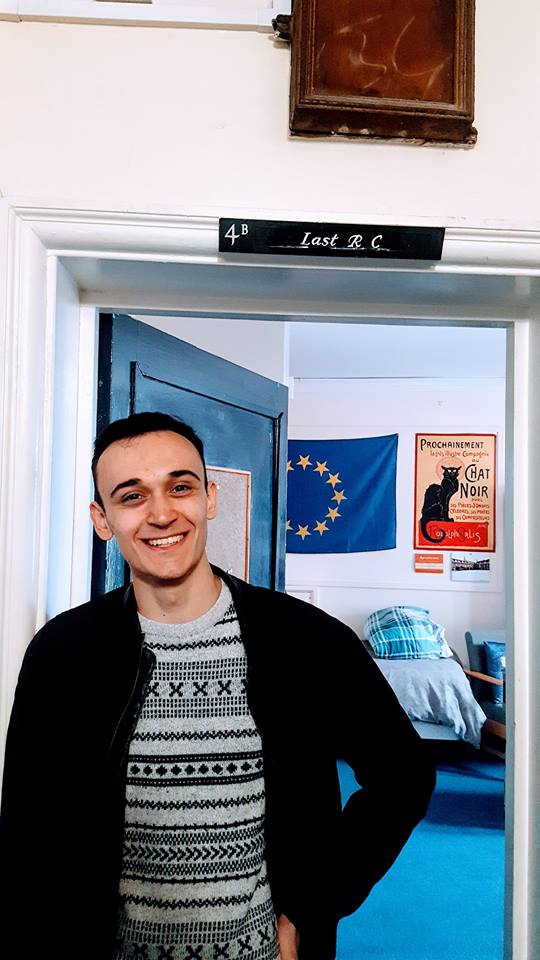
Was final year very different to first year?
Yes, at least in some senses. Third Year consisted purely of content that I had chosen to do, whereas First Year was a pre-set course in which all modules were compulsory. In Third Year, I was able to choose four modules out of a total of twelve, and then had to complete a dissertation alongside those. The year was examined based upon four 3-hour essay examinations and a 10,000-word dissertation. It is a stressful and difficult process, but it is also hugely enjoyable: you are able to learn about and explore a range of topics in such specific detail that you really feel like you get to grips with them. The dissertation is also a fantastic way to pursue an area that interests you in even more detail, allowing you to conduct your own research.
That said, in terms of how the course was taught it was relatively similar: I still had weekly essays, supervisions, reading lists, lectures, and classes, they were simply arranged in different ways and with different academics from a range of specialisms. The timetable hadn't changed to any significant degree, though there were sometimes different styles of teaching employed that were not used in First or Second year, e.g. roundtable discussions.
What papers did you study this year?
I studied The Geographies of Global Urbanism, The Political Geography of Postcolonialism, Volcanology, and Political Ecology in the Global South, as well as completing a dissertation on Vietnamese state aid policy. I chose these modules given that I had enjoyed modules linked to them in previous years (e.g. an earlier first-year section on volcanoes), as well as due to a meeting set by the Department in which we could hear about all the different papers on offer.
What was the most enjoyable thing that you worked on this year?
It was definitely a mix of my dissertation on Vietnam and the paper on Political Ecology. Being able to research a subject area completely of my choosing and getting the opportunity to visit Vietnam was a truly special experience. The course on Political Ecology was also just so interesting: it was about questioning what we constitute as knowledge about the environment, the distribution of power between actors in the Global North and Global South, and how seemingly apolitical knowledge (‘ecological science’) can be used to justify very specific forms of political intervention in many countries.
Did you have a particular way of organising your work in order to get everything done?
Organisation is really key to working well here at Cambridge, as well as ensuring that you get the right amount of rest and social time. Keeping an electronic diary on my phone was super useful: I would encourage everyone to force themselves to try and reply to emails, as well as put things in their diary, as soon as they have to, it really helps in the long run! I tended to treat it like a job in the sense that I would wake up early and work during the morning and day, and thus could have the evening off: work to whatever schedule suits you!
"Organisation is really key to working well here at Cambridge, as well as ensuring that you get the right amount of rest and social time."
Have you been able to manage a reasonable balance of work and other things you wanted to do?
Yes, absolutely. The work sometimes feels very heavy, and it is exceedingly difficult at times. However, the fact that what you are studying is hard makes it all the more interesting because it means you can have so many questions. Added to this, I have often found that on days where I ended up having no work I could even get bored after a while! Working during the day also made nights out and social events even more exciting and enjoyable: I would maybe have one big night out per week (e.g. clubbing) during a regular term, but could always fit people in for coffees, dinners, or events like movie nights on quieter evenings.
Having loads of work during regular term at Cambridge is actually super useful because it means you have so much to draw from by the time you reach exams. I made a revision timetable that was not too specific (i.e. it just listed the broad module for each day) and I found this to be helpful for me personally because I didn’t feel under pressure with a really rigid work timetable, but also knew roughly what would be good to focus on to attend to each subject in a balanced way. Exam term is hard, and it is stressful, but there are also loads of great things about it. For me, I actually find it can be quite nice to not have many lectures and be able to organise your revision according to your own timetable more than you can do in other terms. It was all OK in the end and I had a great finish to the year.
What have you most enjoyed about your time at Christ’s?
I found the College to have a genuinely tight-knit and supportive community. On my arrival to College I very soon felt as if I were at home, and after two or three days it really felt like I had fully settled in terms of being comfortable in the environment and with others at the College. I think both the College itself and the student body at Christ’s try to make it so that freshers feel fully welcome, with many events that you are able to attend and so much to do in the first week that you really do not have any periods where you are just sitting in your room with nothing to do. That’s not to say you can’t get any time off by choice, of course you can, but you are never lost for something to do! Having taken a year out myself for illness, I found on my return that there were numerous people who showed me amazing kindness in re-integrating into a new year at Christ’s, which I think was greatly helped by the fact that we seem to have really good inter-year links, with the different years getting on really well and getting involved in everything from College societies to nights out.
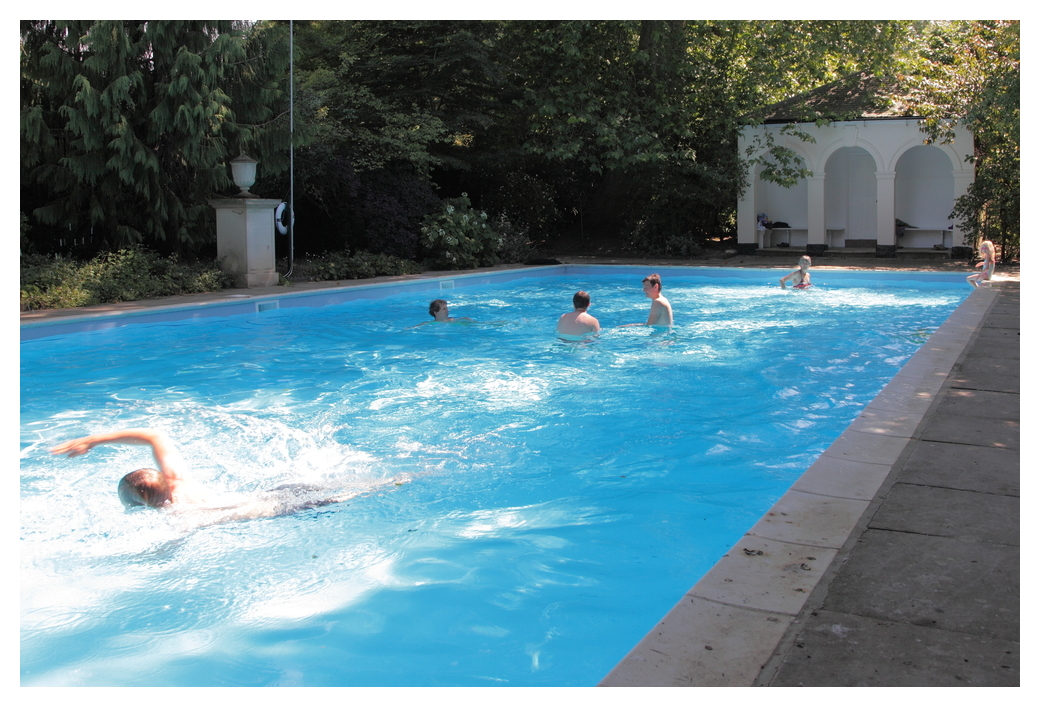
Where is your favourite spot in College?
I think we have one of the best Gardens in Cambridge. It contains an amazing array of different plants that are cared for by an incredible team of full-time gardeners. Mixed with the swimming pool at the other end, it’s the perfect place to just sit down with friends and chat, or relax in the sun on a hot day.
I lived in Third Court in S staircase (room 5a). I really loved my room this year because it was of a good size, had fabulous natural light, and looked out onto the beautiful Third Court. The only downside was really that the kitchen was on the smallish side, shared between five. On the other hand, it meant I got to meet loads of other great people!
What did you do for May Week?
I attended the College May Ball. This was a great event to experience College in a new light and to have fun with other College members. In addition to this, May Week is a brilliant chance just to relax with friends and do everything from small pub trips to picnics by the river.
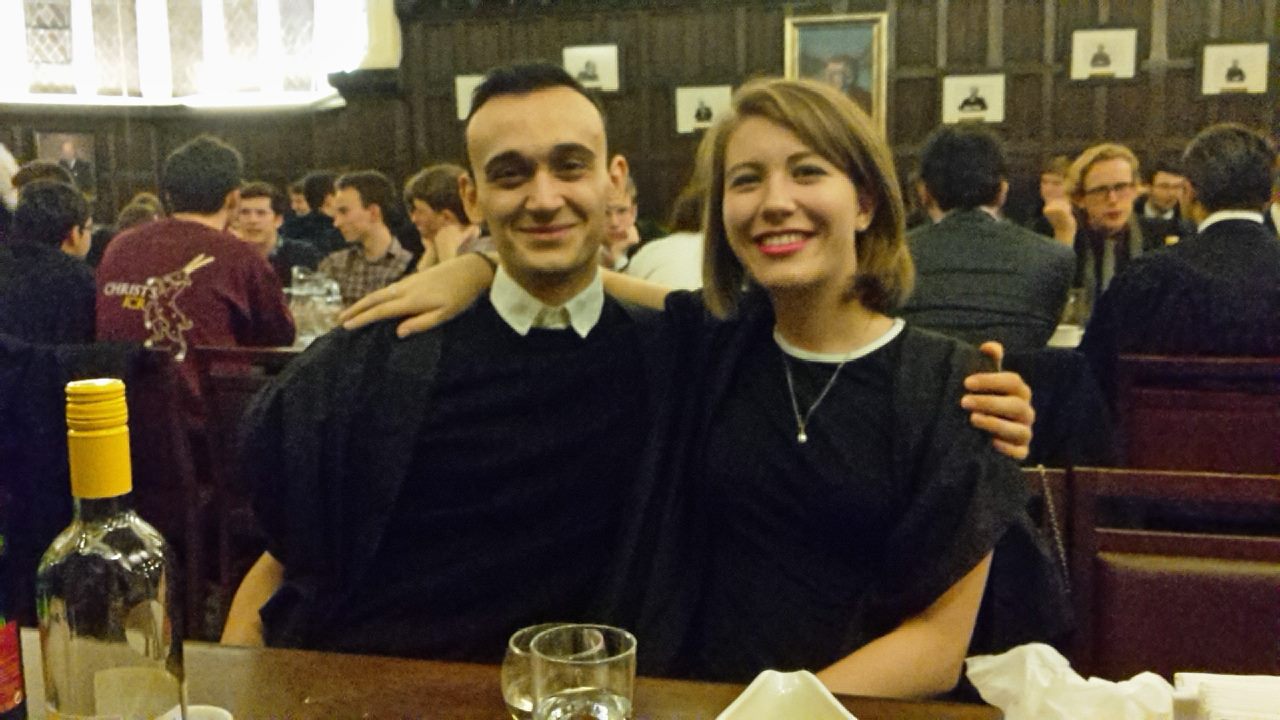
Looking back over your time at Cambridge, what do you feel like you have gained from being here?
I have gained an immense amount since studying at Cambridge. I think I really matured at university. Without doubt, it has led to an unparalleled progression of my academic abilities such as formal academic writing, as well as more generally having equipped me with so many useful skills (e.g. discussion and argument-based skills, essay writing, presentation etc.). It was amazing to learn and know so much about so many things in so much depth. Though of course it is sometimes difficult, you really will never experience an academic environment as productive and on the cutting edge.
Is there anything you would change about how you tackled life here?
I think I would just stress that the most important thing to be is organised, and if you achieve this, then everything should be ok! At points, it can be difficult to get everything done or planned, and in these circumstances I would really encourage anyone to speak to their tutor about moving work around as opposed to just sitting there struggling and thinking that asking for help will be looked down upon: it won’t. Most academics do not get angry at people who are clearly working hard yet do not understand something or are struggling with content: they are there to teach and support you, and if you don’t get something, just ask!
College are immensely supportive both in terms of academics and pastoral care. They have a perfect system for separating the two so that there is never any conflict of interest: for any academic concerns, you can speak to your Director of Studies, and for any welfare concerns you can speak to your assigned tutor who is from a completely separate subject area. At points when I was ill, my tutors aided me consistently in having deadlines moved and just providing a link with College. I found them all to be incredibly kind and helpful, and cannot fault them. The porters are also a source of around-the-clock support and serve as a group of people who are really always looking out for you.
What will you miss most about Christ’s?
I think the lifestyle of living in College and having such an action-packed eight or nine weeks. There is so much going on and Christ's just feels like such a dynamic and exciting environment to be in. That being said, you need to take a break from it every now and then!
My best memories of being here are probably meeting great people, learning about such interesting things, and being able to communicate with academics on a level that was so much more personal and professional than the teacher-student relationship that many may be used to from school. I also loved conducting my dissertation research, getting to know my tutors really well, and just being involved in the College environment in everything from eating, to studying, to socialising.
"There is so much going on and Christ's just feels like such a dynamic and exciting environment to be in."
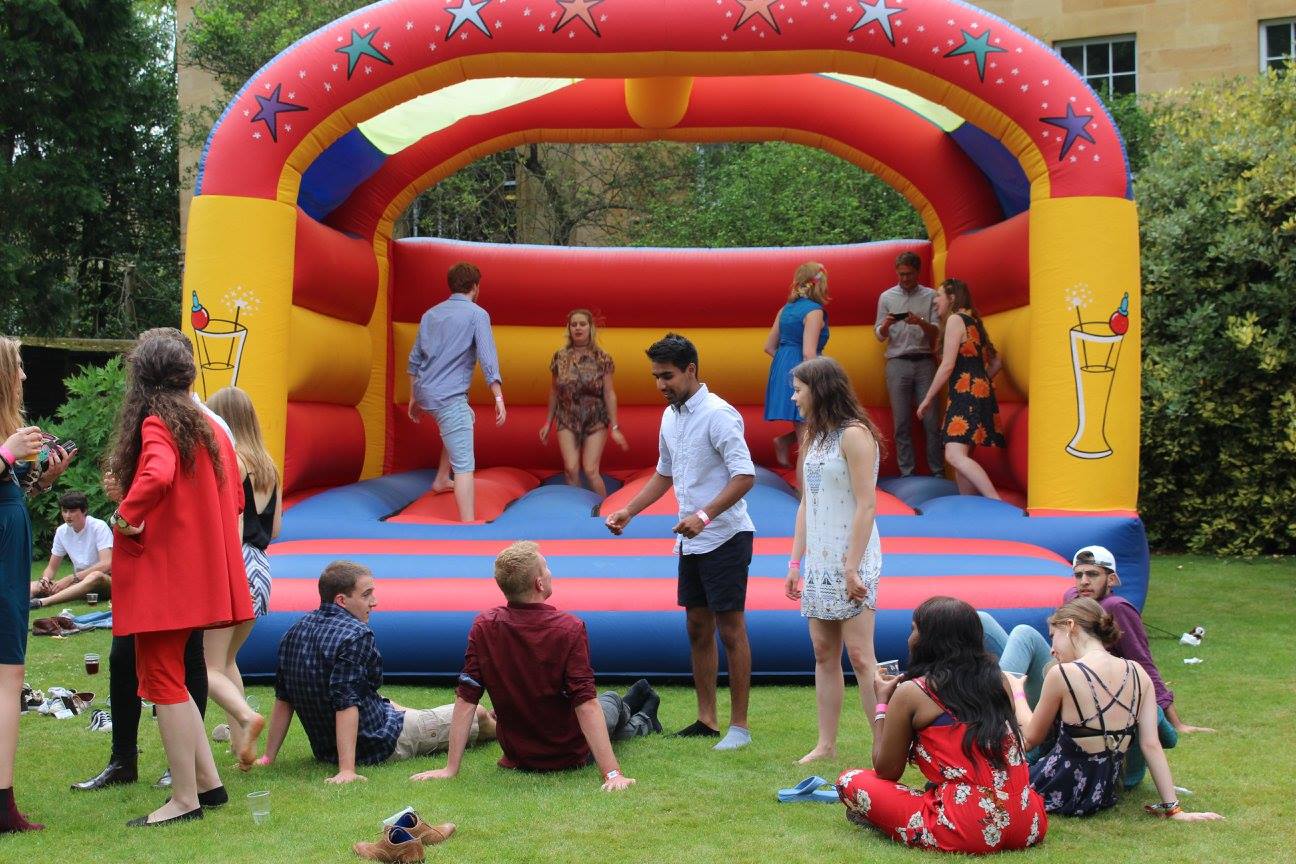
What support is there at Cambridge for careers?
There are many useful events put on by the university careers service for free, and often you will receive emails from people detailing events hosted by people like companies or the civil service.
You can get in contact with the Careers Service at any time and they will be more than happy to help. They also have fantastic resources for taking practice tests for a range of jobs (e.g. the literacy and numeracy tests for many companies).
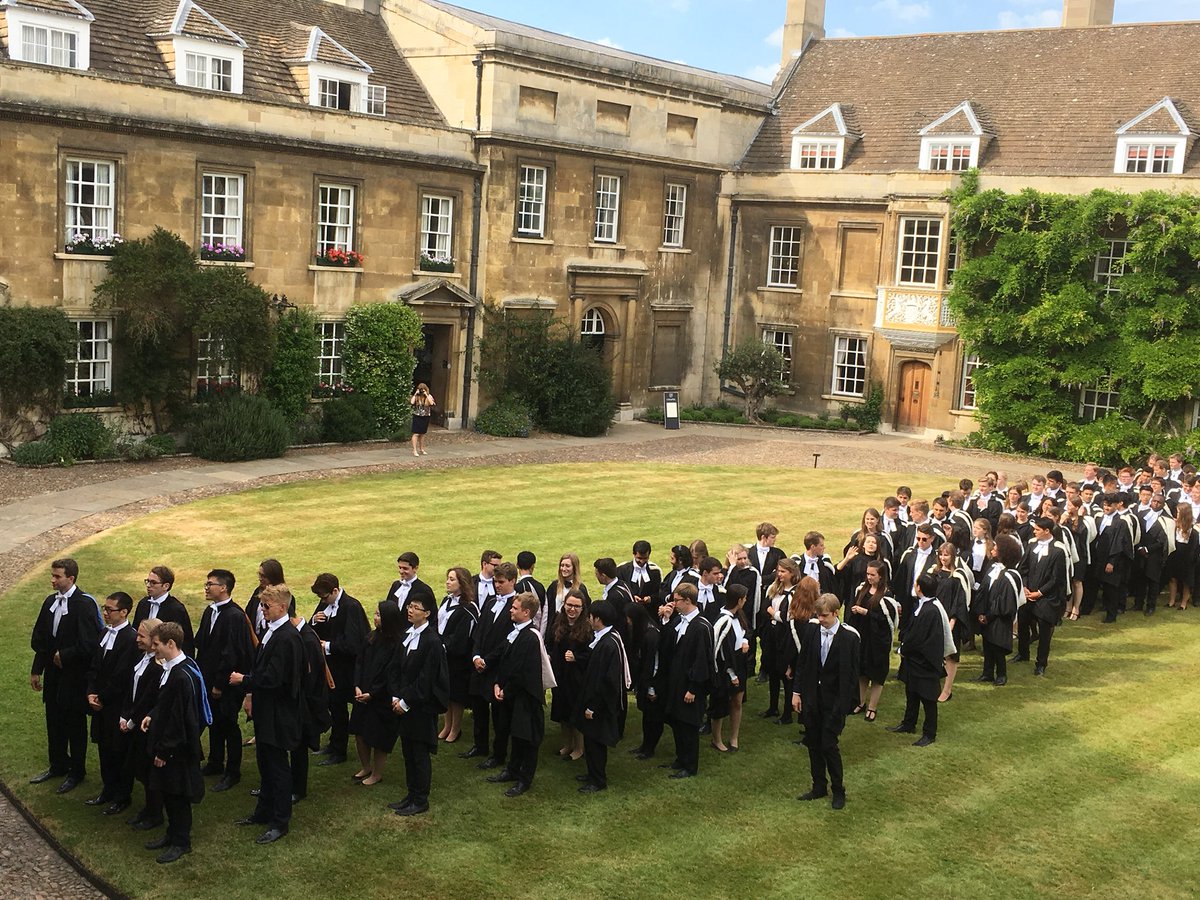
Do you have any plans for what you’ll do post-graduation?
There are so many different things available. Coming from Geography we have people going into law, the charity sector, teaching, banking, consultancy, further study in a range of fields (from graduate medicine to development and gender geography), policy, and the civil service. I will be applying for training contracts at law firms to hopefully go onto becoming a solicitor.
September 2018
Please be aware if you're considering an application that our student writers describe their experiences. Although the majority of the information stays the same, some details may change from year to year. Do read the student profiles in combination with our undergraduate admissions pages for full information.
Back to Student profiles page / Geography at Christ's / Next: Belinda's profile
